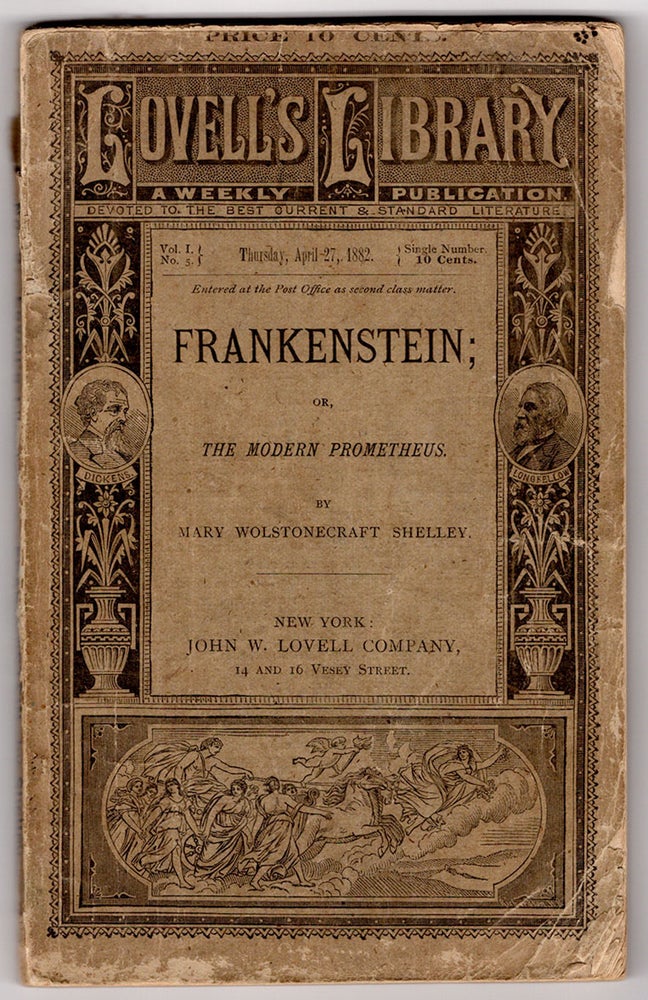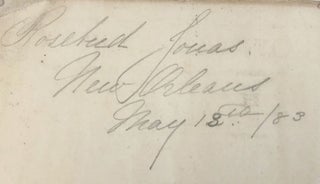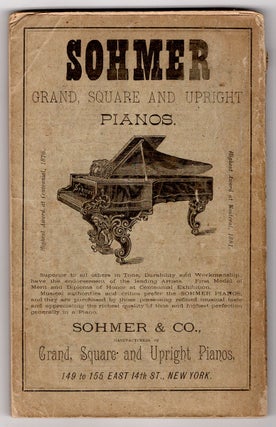Frankenstein; or, the Modern Prometheus. Lovell’s Library, a Weekly Publication. Devoted to the Best Current & Standard LIterature. Vol. 1, No. 5.
14 and 16 Vesey Street, New York: John W. Lovell Company, April 27, 1882. 12mo (7.25” x 4.5”), printed gray wrappers. [5]–177 pp., not including wrappers. Early ownership inscription on the first page reading “Rosalie M. Jonas” and another on the last page reading “Rosebud Jonas, New Orleans, May 13th / 83”. CONDITION: Good +, 1” loss at head of spine, foot of spine chipped, 2” separation at spine of top inner edge of front wrapper, extremities worn, clean throughout. A scarce Lovell’s Library edition of Frankenstein, inscribed in two places by New Orleans and Harlem Renaissance poet Rosalie M. Jonas (1861–1955). According to Black Women of the Harlem Renaissance Era, little is known about Jonas’s early years except for references in later letters (written to illustrator Frederick Dorr Steele) to octoroon balls in New Orleans. The inscription on the last page places Jonas in New Orleans in 1883. Jonas’s first poem Little Mammy was published in 1898 by Harper’s Magazine, followed by her short story New York Light and Shade in 1917 in Art World. Other works by Jonas appeared in various publications into the 1930s. LSU holds three letters by Jonas (from 1905 to 1909) to F. D. Steele, in which she compliments him on his work and asks him to illustrate her “Negro verses” because only he “feels sympathetically about the Negro.” Worldcat locates just eight copies. A rare volume from the library of a Harlem Renaissance poet. REFERENCES: Bracks, Lean’tin, et al. Black Women of the Harlem Renaissance Era (Rowman & Littlefield, 2014), pp. 137–138.
Item #6762
Sold





